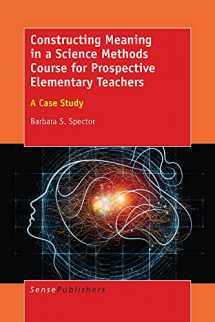
Constructing Meaning in a Science Methods Course for Prospective Elementary Teachers: A Case Study
Book details
Summary
Description
How do prospective elementary science teachers think? This case study • reveals thinking patterns common to preservice elementary teachers; • identifies their behavioral characteristics while learning to teach science which are not commonly noted in current literature; • provides change strategies to accelerate preservice elementary teachers embracing the holistic, constructivist, inquiry/practice-based paradigm consistent with the standards set by the curriculum. The chapters in this book immerse the reader in a sequence of episodes in this science methods course, and reveal the adventure of turning theory into practice while analyzing student-student/student-instructor interactions and their outcomes in an inquiry-driven, flipped classroom. Strategies presented empower preservice elementary teachers to • implement national and state standards; • change science learning/teaching from "business as usual" to applying science and engineering practices in the classroom; • make cognitive and behavioral changes required to shift paradigms and eliminate science anxiety; • pass through stages of grief inherent in the loss of dominant mechanistic paradigm. This book will interest a wide readership including science educators; scientists and engineers; administrators, supervisors, and elementary teachers in a clinical education setting; preservice elementary teachers; and anyone seeking to improve STEM education in elementary schools.


We would LOVE it if you could help us and other readers by reviewing the book
Book review



